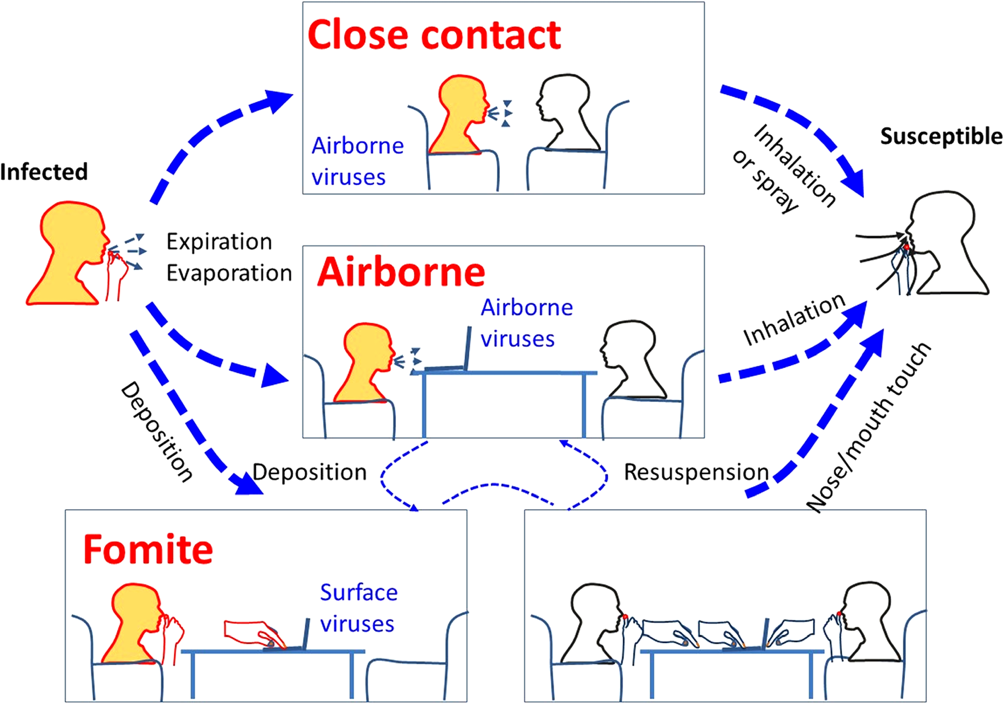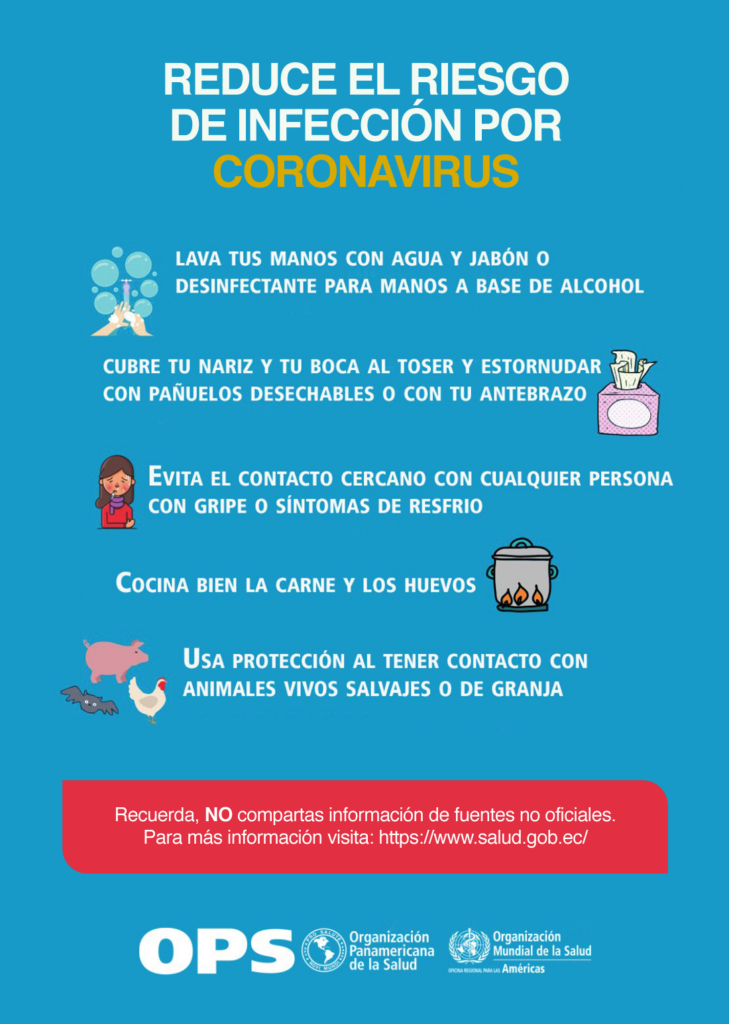Coronavirus pandemic response belongs more to the community than to the hospital
By Jaime Moreno
What should you do to fight COVID-19?
First and foremost, you must understand the disease. Then do not panic. And under no circumstances should you hide information. Ever.
The incubation period is within 14 days after exposure. The most common clinical manifestations are: fever (99%), fatigue (70%), dry cough (59%), anorexia (40%), myalgias (35%), dyspnea (31%), sputum production (27%). Patients with confirmed COVID-19 have a wide spectrum of illness severity, ranging from asymptomatic, of unknown frequency; mild, (no or mild pneumonia) reported in 81% of cases; severe disease (with dyspnea, hypoxia, of >50 percent lung involvement on imaging within 24-48 hours) reported in 14%; critical disease, (with respiratory failure, shock, multiorgan dysfunction) 5%, of these some will recover and others will die. (UpToDate, March 2020).
There are seven coronaviruses that can infect human beings: four types cause the common cold; two others have produced some of the most lethal respiratory infections, such as SARS-CoV (severe acute respiratory syndrome coronavirus); MERS (Middle East respiratory syndrome); and COVID-19, coronavirus disease-19 (also called SARS-CoV-2, the novel coronavirus). (CDC, February 2020).
 There is a need for further studies
There is a need for further studies
The case fatality rate of COVID-19 (percentage of deaths among confirmed cases), is reported around 2.3% of non-critical cases, but it could change when more information is available. In the future, it may be less than 1%, similar to influenza pH1N1 which is 0.02-0.4%. Less lethal than SARS-CoV, 9.5%, MERS-CoV, 34%, and for contrast Ebola 63%. (Munster V.J., NEJM 2020).
COVID-19 transmission is not fully understood, but it is similar to other respiratory infections. Possible transmission routes between an infected and a susceptible host are close range (conversational, cough, sneezing); longer-range airborne, 2 meters; and through fomites (any inanimate object where virus-infected droplets had been deposited), subsequently touched by the hands and then transported to the eyes, nose, mouth. Masks are not recommended to be used by the general public because instead of getting protection, they could get infected by their hands while fixing the masks. A facemask should be used by people infected with COVID-19, health workers, relatives and friends who take care of patients. (R. Tellier, BMC Infectious Diseases, 2019).
“The efficiency of transmission for any respiratory virus has important implications for containment and mitigation strategies. The current study indicates an estimated basic reproduction number (R0) of 2.2, which means that, on average, each infected person spreads the infection to an additional two persons. …Until this number falls below 1.0, it is likely that the outbreak will continue to spread.” (Anthony S. Fauci, NEJM 2020).
Considering contemporary economic, political, and penal issues associated to COVID-19, the threat is frightful, as experts consider a global attack rate (number of cases during a period of time over the population at risk for infection) of about 50-70%, which means that around 50 million people would die, similar to the Spanish Flu of 1918. Naturally, there is the hope that, in the future, as soon as possible, effective and safe vaccines and antiviral agents will be developed.
 You have to prevent contagion in the community
You have to prevent contagion in the community
If you suspect COVID-19, you are committed to immediately communicate health authorities, to initiate control measures. Social distancing, quarantine measures, means to stay home for at least 14 days (or more) to avoid virus propagation aiming to flatten the epidemiologic curve. Patients without critical disease should call before going to health facilities and hospitals.
We all must follow the following recommendations:
- Diligent hand washing, particularly after touching surfaces in public. The use of hand sanitizer that contains at least 60% alcohol is a reasonable alternative if the hands are not visibly dirty.
- Respiratory hygiene (eg, covering the cough or sneeze), sneeze into your bent elbow, use disposable paper towel or tissue, and discard after each use.
- Avoiding touching your face (in particular eyes, nose, and mouth).
- Avoiding crowds (particularly in poorly ventilated spaces) if possible and avoiding close contact with ill individuals.
- Cleaning and disinfecting objects and surfaces that are frequently touched, at least twice a day. (UpToDate, March 2020)
Counseling in coronavirus
If you have a question about COVID-19, send us a message to Facebook Messenger: @hematologialabcuenca
Your personal responsibility with the Ministry of Health
Consult their link for further information: https://www.salud.gob.ec
Follow the guidelines of the Ministry of Public Health and the World Health Organization:
- “If you present with fever, cough and dyspnea, call 171 so that a physician could assess your case with telemedicine.”
- To prevent contagion is everyone’s responsibility. “Abide by the recommendations and get information through official channels.”
- To confirm a clinical suspicion, after you communicate on the telephone, you must go to a health center or a hospital for clinical management and laboratory tests.
- Do not ever hide information.

________________________
InfoHealth: Published in Spanish, at El Mercurio, on 3/15/2020Dr. Jaime Moreno A. writes the InfoHealth blog. For more information and the InfoSalud Spanish language version please click here.
Dr. Jaime Moreno Aguilar
Consultorios Santa Inés, Torre 1, Oficinas 003 y 102
Daniel Córdova y Federico Proaño
Teléfonos: 072843136 – 0997281884 – 0997257585
jaime.moreno@yahoo.com

















